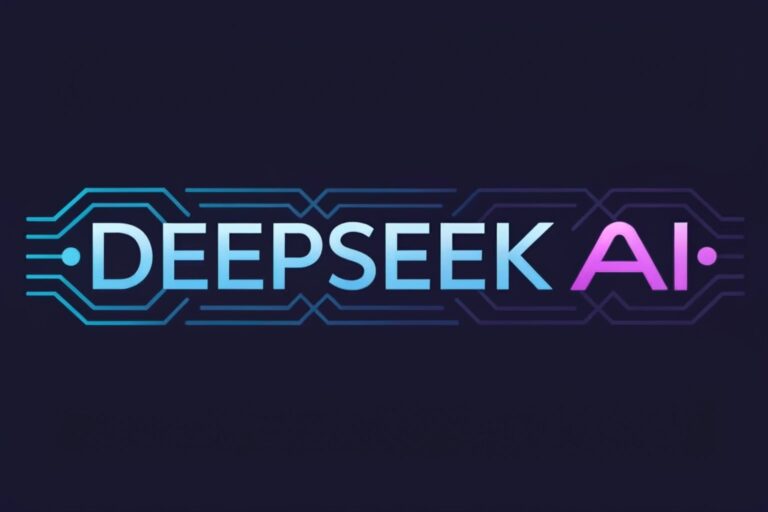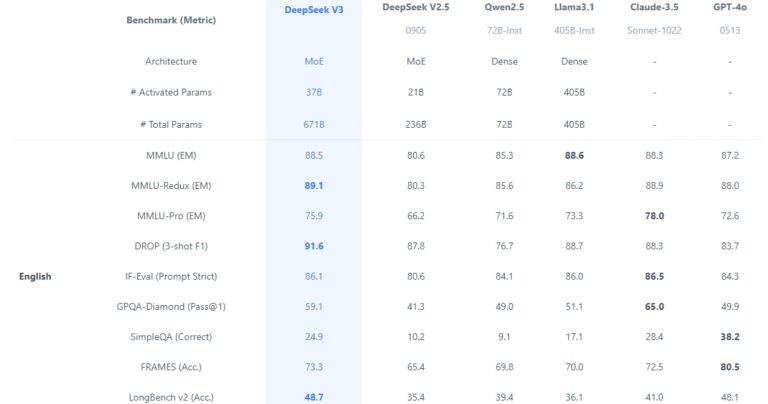DeepSeek, a Chinese AI language model, has rapidly emerged as a serious competitor to OpenAI’s ChatGPT. Its disruptive impact on the AI landscape has been significant, raising concerns among industry giants and prompting discussions on cost efficiency, technical prowess, and market accessibility. Unlike its Western counterparts, DeepSeek is not just another chatbot—its Mixture-of-Experts (MoE) architecture and open-source model position it as a unique player in the AI race.
Just a week after launch, DeepSeek became the most downloaded free app in the U.S., signaling a shift in user preferences and AI adoption. But how does it truly compare to ChatGPT in terms of writing capabilities, coding efficiency, research assistance, and market impact? Let’s explore the key differences and what they mean for users and the broader AI industry.
DeepSeek vs. ChatGPT: A Head-to-Head Comparison
1. Model Architecture and Performance
DeepSeek employs a Mixture-of-Experts (MoE) model with 671 billion parameters, activating only a subset for each query. This approach optimizes computational efficiency, ensuring faster responses with lower energy consumption. ChatGPT, on the other hand, utilizes a traditional transformer model where all parameters are engaged for every task. This results in more consistent output but potentially higher computational costs.
DeepSeek’s MoE structure allows it to dynamically allocate resources, improving performance in technical domains, particularly mathematics and structured queries. In contrast, ChatGPT excels in broader contextual understanding and more natural conversational responses.
2. Writing Assistance and Content Generation
When tested on content creation, DeepSeek demonstrates impressive capabilities in technical writing and structured information retrieval. For instance, when asked to summarize the greatest Scottish football players, DeepSeek provided a well-organized top-ten list with relevant details. ChatGPT, however, crafted a more detailed and engaging blog-style response, highlighting narratives and historical context.
For brainstorming creative ideas, ChatGPT offers multiple concise concepts, making it useful for iterative idea generation. DeepSeek, on the other hand, tends to produce a single, fully developed response, which may be beneficial for structured storytelling but less flexible for brainstorming sessions.
3. Coding and Technical Queries
Developers have found DeepSeek particularly effective for coding-related tasks. AI researcher Javier Aguirre noted that DeepSeek solved a complex programming challenge that ChatGPT-4 struggled with. DeepSeek’s direct, efficient coding output makes it ideal for rapid prototyping and debugging.
ChatGPT, however, offers a more explanatory approach. It provides step-by-step breakdowns, making it a better choice for learners or developers who need in-depth understanding alongside code suggestions. Industry experts like Addy Osmani suggest that combining DeepSeek with Anthropic’s Claude Sonnet enhances coding efficiency, making hybrid usage a promising trend.
4. Learning and Research Applications
In educational contexts, both AI models perform well, but with distinct strengths. ChatGPT provides detailed, well-contextualized explanations, making it ideal for comprehensive learning experiences. DeepSeek prioritizes conciseness, delivering fact-driven summaries suitable for quick reference and technical validation.
For historical research, ChatGPT offers nuanced interpretations, while DeepSeek efficiently distills key points. Google’s Gemini adds another dimension by integrating external sources, but DeepSeek’s speed and precision make it a strong alternative for factual inquiries.
5. Cost Efficiency and Market Accessibility
One of DeepSeek’s most significant advantages is cost. While OpenAI invests tens of millions in training its models, DeepSeek claims to have developed its AI for just $5.5 million. This cost efficiency is reflected in API pricing, with DeepSeek offering significantly lower rates than OpenAI.
Moreover, DeepSeek maintains an open-source framework, allowing users to run the model locally, eliminating privacy concerns. In contrast, OpenAI’s ChatGPT operates on a freemium model, requiring subscriptions for premium features.
6. Privacy and Ethical Considerations
ChatGPT adheres to Western data protection regulations, ensuring compliance with privacy laws. DeepSeek, while open-source, has raised concerns due to potential governmental censorship. However, since users can run the model locally, they can bypass restricted content filtering, making DeepSeek an appealing option for those prioritizing privacy and control over their AI interactions.
The Economic and Industry Impact of DeepSeek
DeepSeek’s rapid adoption signals a growing demand for cost-effective, high-performance AI alternatives. Its open-source nature challenges OpenAI’s more closed-off approach, reigniting debates over transparency in AI development.
By demonstrating that advanced AI can be trained at a fraction of the cost, DeepSeek puts pressure on industry leaders to rethink their investment strategies. Its impact extends beyond AI companies; businesses and developers benefit from access to a powerful, affordable model that reduces reliance on expensive proprietary systems.
Moreover, DeepSeek’s emergence disrupts the notion of U.S. tech dominance in AI, highlighting China’s capabilities in deep learning innovations. As competition intensifies, we can expect further breakthroughs in efficiency, accessibility, and AI-powered solutions.
Conclusion: Which AI is Right for You?
Choosing between DeepSeek and ChatGPT depends on your priorities. If you need an open-source, cost-effective model with superior technical efficiency, DeepSeek is the clear winner. However, if you prioritize conversational depth, ease of use, and strong privacy compliance, ChatGPT remains a top choice.
| Feature | DeepSeek | ChatGPT |
|---|---|---|
| Pros |
|
|
| Cons |
|
|
If you are interested in this topic, we suggest you check our articles:
- DeepSeek: The Chinese AI Firm Disrupting Global Industry
- DeepSeek R1 Chatbot: How to Navigate the New Model
- Generative AI in Education: Is Banning an Option?
Sources: Hugging Face, Mashable, BBC


